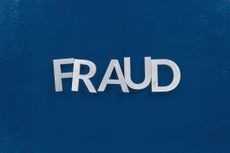Vermont State Tax Guide
Vermont state tax rates and rules for income, sales, property, fuel, cigarette, and other taxes that impact residents.


Vermont state tax: Overview
Vermont has four income tax brackets, and the state still taxes Social Security benefits for some filers. Property taxes are high when compared to most other states, and Vermont also has an estate tax. However, the sales tax rate in Vermont is about average, and many types of essential items are tax-exempt.
[Data for this state tax guide was gathered from a number of sources including the Census Bureau, the state’s government website, the Sales Tax Handbook, and the Tax Foundation. Property taxes are cited as a rate percentage rather than the assessed value.]
Vermont income taxes

Below are income tax rates for tax year 2022. Vermont has not issued new tax rates for the 2023 tax year.

Sign up for Kiplinger’s Free E-Newsletters
Profit and prosper with the best of expert advice on investing, taxes, retirement, personal finance and more - straight to your e-mail.
Profit and prosper with the best of expert advice - straight to your e-mail.
Vermont Income Taxes: Single Filers
| $3,500 to $48,900 | 3.35% |
| $48,900 to $113,550 | 6.6% |
| $113,550 to $233,050 | 7.6% |
| More than $233,050 | 8.75% |
Vermont Income Taxes: Married filing separately
| $10,538 to $86,388 | 3.35% |
| $86,388 to $193,938 | 6.6% |
| $193,938 to $289,988 | 7.6% |
| More than $289,988 | 8.75% |
Vermont tax on retirement benefits: Social Security benefits are exempt for joint filers with an adjusted gross income (AGI) of $65,000 or less. Additionally, Vermont offers a deduction of up to $10,000 for some types of retirement income. However, income requirements apply. Railroad Retirement benefits are tax-exempt in Vermont.
Vermont sales tax
Vermont's state sales tax rate is 6%. Localities can add up to 1% in additional sales taxes. However, the average combined sales tax rate in Vermont is 6.359%, according to the Tax Foundation. Several types of products are exempt from sales tax.
- Groceries are tax-exempt.
- Clothing is tax-exempt.
- Prescription drugs are tax-exempt.
- Vermont does not tax menstrual products.
- Diapers are tax-free in Vermont.
How much are Vermont property taxes?

Property taxes are higher in Vermont than in most other states, with a median annual tax bill of $4,570 and an average effective property tax rate of 1.9%.
Vermont Property Tax Breaks for Retirees
Vermont offers a property tax credit of up to $8,000 to eligible homeowners. Homeowners must meet all of the following requirements to qualify for the credit in 2023.
- Your property must qualify as a homestead (as of April 1), and you must have filed a Homestead Declaration for the current year's grand list.
- You must have been domiciled in Vermont for all of 2022.
- You must not have been claimed as a dependent on a 2022 tax return.
- Your household income must not have exceeded $134,800 in 2022.
Vermont gas taxes (motor fuel)
Gasoline: $0.316 per gallon
Diesel: $0.341 per gallon.
Vermont taxes on alcohol and tobacco
| Cigarettes | $3.08 per pack |
| Snuff | $2.57 per ounce |
| Cigars | $20 to $40 per 10 cigars |
| Vapor products | 92% of wholesale price |
| Beer | $0.26 per gallon |
| Wine | $0.55 per gallon |
| Liquor | State-Controlled (plus 10% on-premise sales tax) |
Vermont estate and inheritance taxes
Vermont has an estate tax with an exemption of $5 million. The tax rate is a flat 16%.
Related Content

Katelyn has more than 6 years’ experience working in tax and finance. While she specializes in tax content, Katelyn has also written for digital publications on topics including insurance, retirement and financial planning and has had financial advice commissioned by national print publications. She believes that knowledge is the key to success and enjoys helping others reach their goals by providing content that educates and informs.
-
 Seven Steps Couples Should Take Before Blending Their Finances
Seven Steps Couples Should Take Before Blending Their FinancesGetting on the same page now can ensure you remain successful throughout your relationship.
By Kiplinger Advisor Collective Published
-
 Charitable Remainder Trust: The Stretch IRA Alternative
Charitable Remainder Trust: The Stretch IRA AlternativeThe SECURE Act killed the stretch IRA, but a properly constructed charitable remainder trust can deliver similar benefits, with some caveats.
By Brandon Mather, CFP®, CEPA, ChFEBC® Published
-
 Retirees Face Significant Tax Bills Due to Fraud
Retirees Face Significant Tax Bills Due to FraudFraud A new report sheds light on how older adult scam victims end up with big tax bills and lost retirement savings.
By Kelley R. Taylor Last updated
-
 Tax Day: Is the Post Office Open Late?
Tax Day: Is the Post Office Open Late?Tax Filing Tax Day means some people need to mail their federal income tax returns.
By Kelley R. Taylor Published
-
 High Earners: Beware of These Illegal Schemes to Lower Taxes
High Earners: Beware of These Illegal Schemes to Lower TaxesTax Schemes The IRS says high-income filers are targets for several illegal tax schemes.
By Katelyn Washington Last updated
-
 Mailing Your Tax Return This Year? What to Know Before You Do
Mailing Your Tax Return This Year? What to Know Before You DoTax Filing There are plenty of reasons not to mail your tax return this year, but here’s what you should know if you are.
By Katelyn Washington Last updated
-
 IRS Warning: Beware of Smishing and 'Helper' Tax Scams
IRS Warning: Beware of Smishing and 'Helper' Tax ScamsScams Tax season is a time to look out for email and text message scams.
By Kelley R. Taylor Last updated
-
 Most Expensive States to Live in for Homeowners
Most Expensive States to Live in for HomeownersProperty Taxes High property tax bills make the places on this list the most expensive states for homeowners to live in.
By Katelyn Washington Last updated
-
 Don’t Miss This $2,500 Tax Break for Paying Your Student Loan
Don’t Miss This $2,500 Tax Break for Paying Your Student LoanTax Deductions Do you qualify for the student loan interest deduction this year?
By Katelyn Washington Last updated
-
 How Much Richer Could You Be Without a Big Tax Refund?
How Much Richer Could You Be Without a Big Tax Refund?Tax Refunds A big tax refund isn’t a reason to celebrate if you overpaid throughout the year. Here’s how much money your interest-free loan to the government could have cost you.
By Katelyn Washington Last updated